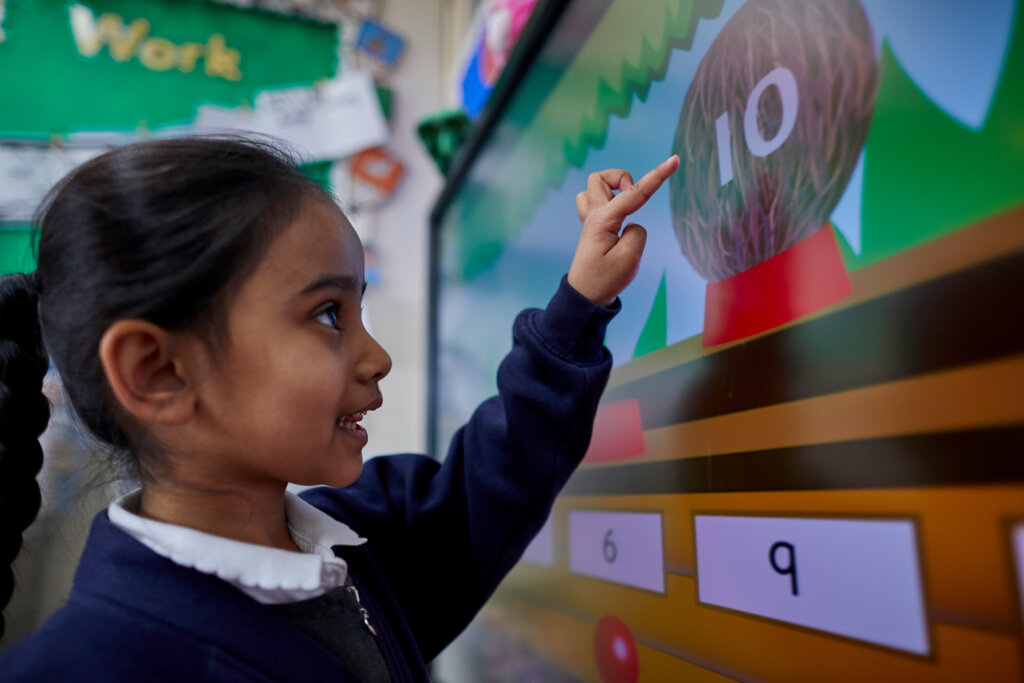Key insights from Ofsted’s annual report
After inspections went ahead largely unaffected by Covid for the first time since 2019, Ofsted has published its annual report for 2021-22. The report acknowledges the lasting impact of the pandemic, reflecting on the rise of speech and language delays; behavioural issues; staff absences and the strain on special educational needs and disabilities (SEND) services. But despite these challenges, Ofsted says ‘our inspections told a broadly positive story’ over the year.
In total, 88 percent of state-funded schools were judged good or outstanding, rising slightly from 86 percent in 2021. Out of 4,620 inspections, more than 800 took place at schools that were previously judged “requires improvement.” Of these, 70 percent improved to good or outstanding, up from 56 percent in 2019/20. Furthermore, only 5 percent of schools that had previously been judged “inadequate” failed to improve, which Ofsted took as a sign of encouragement.
However, over 80 percent of formerly outstanding schools did not retain their grade, after the policy exempting outstanding schools from routine inspections was listed. Ofsted felt this outcome was to be somewhat expected, as some schools had not been inspected in a decade or more. Formerly exempt schools were judged less than outstanding generally due to weaknesses in safeguarding; leadership and management; and making the curriculum accessible to learners with SEND. More details are due to be published in early 2023.
Despite many positive developments, Ofsted expresses concerns for pupils who are kept ‘out of sight.’ They emphasise the need for a register of home-educated children as well as greater powers to tackle illegal schools – proposals that had both been included in the Schools Bill, which has now been scrapped. Ofsted also calls for the compulsory registration of all Alternative Provision (AP) following a rise of placements at independent schools and unregistered providers.
School attendance also continues to be a concern. Whilst the absence rate fell from 11.7 percent in autumn 2020 down to 8.5 in 2021, the inspectorate notes that this is still much higher than when the rate stood at 4.9 percent in 2019. At the same time, the number of persistent absentees has also increased. Additionally, part-time timetables appear to be used more regularly in schools. Whilst this may be seen as a better alternative to exclusion, Ofsted warns that this is ‘another avenue by which children can slowly slide out of education.’
High Court will hear unions’ legal challenge over strike breaking laws
The High Court has granted permission for unions to pursue legal action against the government’s new legislation allowing agency workers to cover for those on strike. The case has been taken by eleven trade unions representing millions of workers across a wide range of sectors, including school support staff and teachers.
As waves of industrial action sweep over Britain, unions accuse the government of threatening the right to strike. In addition to the new agency worker regulations, the government is also trying to legislate minimum service levels in transport. Frances O’Grady, general secretary of the Trades Union Congress (TUC), says that ministers are finding ‘new ways to make it harder for working people to bargain for better pay and conditions […] restricting the freedom to strike is a breach of international law. That’s why unions are coming together to challenge this change in the courts.’
Unions argue that the new agency worker regulations are unlawful because the government failed to consult unions, and because they violate fundamental trade union rights protected by Article 11 of the European Convention on Human Rights. This challenge will be heard alongside separate legal cases brought by the teachers’ union NASUWT and Unison, who also represent school support staff. Cases are expected to be heard from March next year.
Calls for further investment to close the disadvantage gap
Research by the Education Policy Institute (EPI) shows that the pandemic has largely reversed any gains made over the last decade to close the disadvantage gap in Key Stage 4. After revealing the profound impact of persistent poverty on exam outcomes and learning, the EPI calls for the government to increase funding for disadvantaged students.
Analysing results from 2021, researchers found that the GCSE disadvantage gap widened by 0.1 grades, or 8 percent, with disadvantaged pupils around 1.34 grades behind their peers. This marks the largest annual increase in the disadvantage gap since 2011. Similarly, the 16-19 disadvantage gap was 0.4 grades wider across students’ best three qualifications in 2021, as students from disadvantaged backgrounds were generally 3.1 grades behind their peers, increasing from 2.7 in 2019.
The gap also widened for persistently disadvantaged pupils – those who are in poverty for at least 80 percent of the time they are in school. The EPI states that ‘the gap for these children is twice the size of the gap for those children who are in poverty for a much shorter period of their time in school.’ With this in mind, researchers are concerned by the rising numbers of children living in persistent poverty. Data shows that the proportion of Key Stage 4 pupils who have always been eligible for free school meals has increased from 22.1 percent in 2019, to 27.6 percent in 2021 – a rise of more than 9,000 pupils in total.
Despite their additional challenges, researchers point out that disadvantaged students receive no extra support beyond the pupil premium. They argue that these pupils should receive higher levels of funding, which is weighted more heavily towards those living in persistent poverty.
The think tank also recommends that the government ensures disadvantaged learners can be easily identified by drawing data from the National Pupil Database, allowing schools and colleges to better understand pupil outcomes and offer targeted support. Additionally, they call for further research to address the drivers of poor outcomes, alongside a cross-government child poverty strategy to tackle educational inequalities.
As the autumn term draws to a close, we would like to thank our colleagues in schools and trusts for all their hard work and dedication over the past year. It’s been a pleasure to work with you all and we look forward to seeing what we accomplish together in 2023!
Have a very happy Christmas and we will see you again in the New Year!















